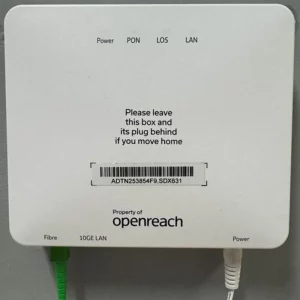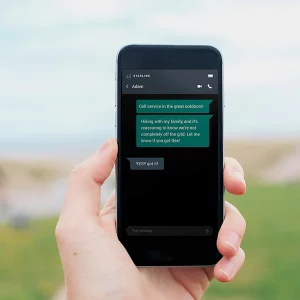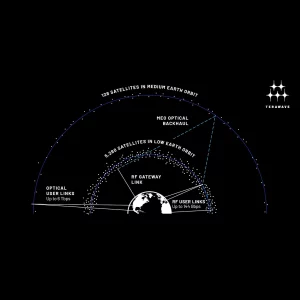Sponsored Links
Piracy Website Makes Mockery of BTs UK Court Ordered Internet Censorship
Posted: 16th Sep, 2011 By: MarkJ

 A website that the High Court of Justice (London, UK) and Rights Holders recently ordered broadband ISP BT to block (here), Newzbin2, has made a mockery of the expensive case by allowing its visitors to easily circumvent the measures before they've even been implemented.
A website that the High Court of Justice (London, UK) and Rights Holders recently ordered broadband ISP BT to block (here), Newzbin2, has made a mockery of the expensive case by allowing its visitors to easily circumvent the measures before they've even been implemented.The site, which effectively indexes binary Newsgroups (Usenet) that are known to facilitate "illegal" internet copyright infringement (piracy), has so far survived repeated attempts to have it removed from the web and now looks set to dodge another bullet.
Under the injunction BT is required to adapt its Cleanfeed system, which normally works alongside the Internet Watch Foundation ( IWF ) to block child sexual abuse content, by the end of October 2011 to include the Newzbin2 site.
A BT Spokesperson said (July 2011):
"This is a helpful judgement, which provides clarity on this complex issue. It clearly shows that rights holders need to prove their claims and convince a judge to make a court order. BT has consistently said that rights holders need to take this route. We will return to court after the summer to explain what kind of order we believe is appropriate."
"This is a helpful judgement, which provides clarity on this complex issue. It clearly shows that rights holders need to prove their claims and convince a judge to make a court order. BT has consistently said that rights holders need to take this route. We will return to court after the summer to explain what kind of order we believe is appropriate."
To combat this the Newzbin2 site has now released a new software tool called Newzbin Client 1.0.0.127, which allows any of the websites visitors to easily bypass BT's filter. This is possible because ISP's have no control to physically remove or block content that does not exist on their own network, at least not without halting all web (http) traffic.
Strictly speaking the tool itself isn't necessary because any form of website blocking imposed by an ISP, which is often costly and technically difficult to achieve, can already be circumvented via various different methods (e.g. Proxy Servers, VPN, DNS changes etc.). What it does do is highlight just how easy it is to get around these restrictions, while at the same time ensuring that a user's online activity becomes significantly less detectable.
Until recently the government had intended to force similar measures upon big ISPs, although this was effectively shelved after a review by Ofcom was forced to admit that "the provisions as they stand would not be effective" (here). However efforts to revive the scheme through a new Voluntary Code are already underway (here).
Nicholas Lansman, ISPA Secretary General, said (July 2011):
"Concerns about over-blocking, ease of circumvention and increased encryption are widely-recognised which means that blocking is not a silver bullet to stop online copyright infringement. Rather, as the Government-commissioned Hargreaves Review recently found, there should be more focus on offering innovative, fully-licensed content services to give consumers what they are clearly demanding."
"Concerns about over-blocking, ease of circumvention and increased encryption are widely-recognised which means that blocking is not a silver bullet to stop online copyright infringement. Rather, as the Government-commissioned Hargreaves Review recently found, there should be more focus on offering innovative, fully-licensed content services to give consumers what they are clearly demanding."
The software itself is believed to work in a similar way to Tor, which uses a network of proxy style "virtual tunnels" to avoid internet censorship systems. Tor helped the Egyptians, Libyans and Tunisians communicate via the internet during the recent Middle East uprisings.
Naturally there are Pro's and Con's to situations like this and internet censorship as a whole, although the reality is that, short of completely switching the internet off to satisfy Rights Holders, the only way to truly stop such content is to remove it at source. On a global internet that's often easier said than done.
Search ISP News
Search ISP Listings
Search ISP Reviews
Latest UK ISP News








Cheap BIG ISPs for 100Mbps+
150,000+ Customers | View More ISPs
Cheapest ISPs for 100Mbps+
Modest Availability | View More ISPs
Latest UK ISP News
Helpful ISP Guides and Tips
Sponsored Links
The Top 15 Category Tags
- FTTP (6843)
- BT (3900)
- Politics (3092)
- Business (2787)
- Openreach (2679)
- Building Digital UK (2522)
- Mobile Broadband (2495)
- FTTC (2147)
- Statistics (2143)
- 4G (2110)
- Virgin Media (2038)
- Ofcom Regulation (1787)
- 5G (1753)
- Fibre Optic (1609)
- Wireless Internet (1602)
Sponsored
Copyright © 1999 to Present - ISPreview.co.uk - All Rights Reserved - Terms , Privacy and Cookie Policy , Links , Website Rules































